So, you’d like to keep backyard chickens? You’re reading all you can to learn what you need to know to get started, you have bought all the books and are scouring the Internet hoping to absorb the most important information. That’s a great start, but some lessons are painful and expensive to learn by experience, so in the hope of sparing some growing pains for those about to embark on chicken-keeping, I have asked my Facebook fans what they wish they had known before they began keeping chickens. The following are some of their replies and a few of my own.
Three words: JUST DO IT!
Check your local ordinances and zoning code regulations to make sure you can keep chickens legally. Don’t assume that it’s legal just because others in the neighborhood are doing it. Research whether there is a limit on the number of chickens, a permit required for a coop, whether are roosters allowed or any other restrictions. Don’t be afraid to petition local government to change the law to legalize chicken-keeping!
Do your homework…chickens are a serious commitment.
Buy from a reputable breeder or hatchery, not an auction or swap if at all possible. Have what they need before they arrive.
A hen does not necessarily lay an egg every day. There are many factors that play a role in egg-production– some can be influenced by you, but others cannot.
Do it right the first time and don’t cut corners. Get/build a bigger coop than you think you want/need. Chicken Math is a force to be reckoned with.
Coop placement is important. (shade in summer, dry location in rainy climates) Make the coop and run “people friendly” to make cleaning and maintenance easier.
Don’t plan on just getting a few… it’s an addiction. There will always be more than you expected.
Even when purchasing female chicks, (aka: sexed) vent sexing is only 90% accurate. Have a plan for roosters that cannot be kept.
Make sure you have a well stocked first aid kit and an area where sick or injured birds can be kept away from the flock.
Chicken wire will not protect chickens from predators, only hardware cloth can.
Research the different breeds as some do better in the heat, some do better in the cold, some lay more eggs than others, some are more inclined to brood and some are more or less friendly than others.
Put sand in the run to keep it from getting muddy. Using sand for litter inside the coop makes cleaning it much easier and creates a healthier environment for the chickens in all climates.
That chicken scratch is NOT chicken feed and obesity is a major problem in backyard chickens.
Always have an escape plan from inside the chicken coop and run. If there is any way to get locked inside, it will happen when it is least convenient. The pink rope on the latch to this run door opens the latch from inside the chicken run.
Mulch in landscaped beds doesn’t stand a chance. Chickens will take dust baths in the location you least want them to.
How much I would love them and how much they would change my life. Wish I had had chickens years ago!
And a personal favorite, from Tiffany M.: “Make sure they are signed up for your blog and ‘like’ you on Facebook.”☺
Kathy Shea Mormino
Affectionately known internationally as The Chicken Chick®, Kathy Shea Mormino shares a fun-loving, informative style to raising backyard chickens. …Read on


shop my SPONSORS
So, you’d like to keep backyard chickens? You’re reading all you can to learn what you need to know to get started, you have bought all the books and are scouring the Internet hoping to absorb the most important information. That’s a great start, but some lessons are painful and expensive to learn by experience, so in the hope of sparing some growing pains for those about to embark on chicken-keeping, I have asked my Facebook fans what they wish they had known before they began keeping chickens. The following are some of their replies and a few of my own.
Three words: JUST DO IT!
Check your local ordinances and zoning code regulations to make sure you can keep chickens legally. Don’t assume that it’s legal just because others in the neighborhood are doing it. Research whether there is a limit on the number of chickens, a permit required for a coop, whether are roosters allowed or any other restrictions. Don’t be afraid to petition local government to change the law to legalize chicken-keeping!
Do your homework…chickens are a serious commitment.
Buy from a reputable breeder or hatchery, not an auction or swap if at all possible. Have what they need before they arrive.
A hen does not necessarily lay an egg every day. There are many factors that play a role in egg-production– some can be influenced by you, but others cannot.
Do it right the first time and don’t cut corners. Get/build a bigger coop than you think you want/need. Chicken Math is a force to be reckoned with.
Coop placement is important. (shade in summer, dry location in rainy climates) Make the coop and run “people friendly” to make cleaning and maintenance easier.
Don’t plan on just getting a few… it’s an addiction. There will always be more than you expected.
Even when purchasing female chicks, (aka: sexed) vent sexing is only 90% accurate. Have a plan for roosters that cannot be kept.
Make sure you have a well stocked first aid kit and an area where sick or injured birds can be kept away from the flock.
Chicken wire will not protect chickens from predators, only hardware cloth can.
Research the different breeds as some do better in the heat, some do better in the cold, some lay more eggs than others, some are more inclined to brood and some are more or less friendly than others.
Put sand in the run to keep it from getting muddy. Using sand for litter inside the coop makes cleaning it much easier and creates a healthier environment for the chickens in all climates.
That chicken scratch is NOT chicken feed and obesity is a major problem in backyard chickens.
Always have an escape plan from inside the chicken coop and run. If there is any way to get locked inside, it will happen when it is least convenient. The pink rope on the latch to this run door opens the latch from inside the chicken run.
Mulch in landscaped beds doesn’t stand a chance. Chickens will take dust baths in the location you least want them to.
How much I would love them and how much they would change my life. Wish I had had chickens years ago!
And a personal favorite, from Tiffany M.: “Make sure they are signed up for your blog and ‘like’ you on Facebook.”☺




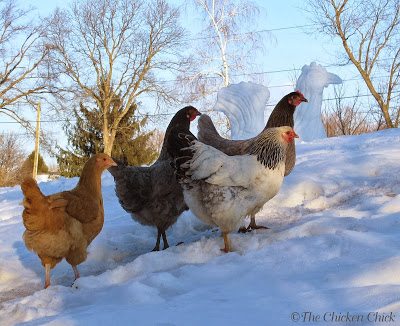
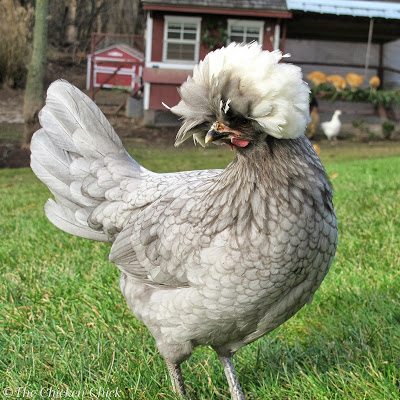

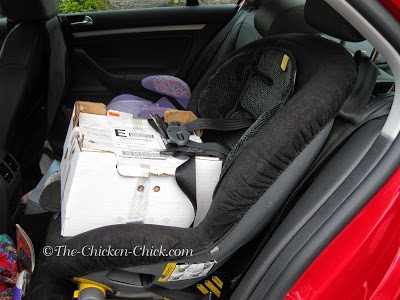
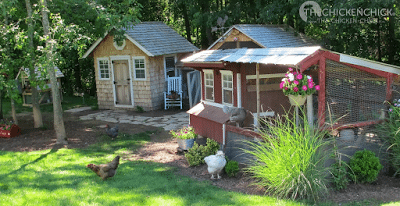
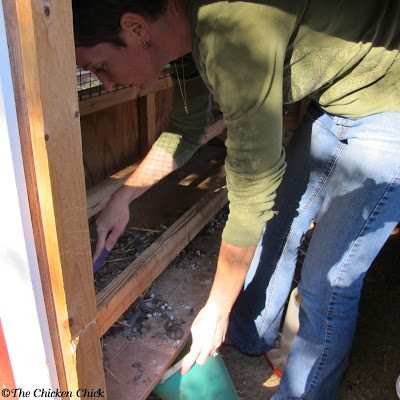

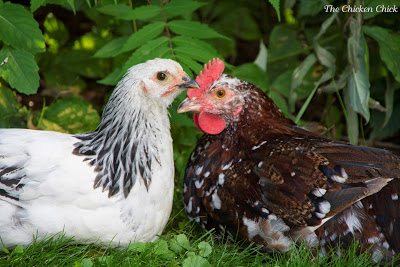
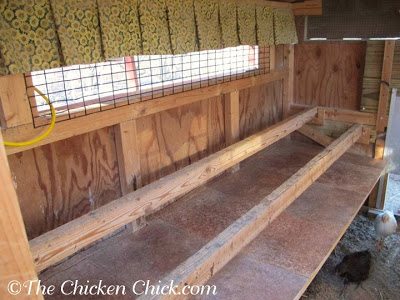
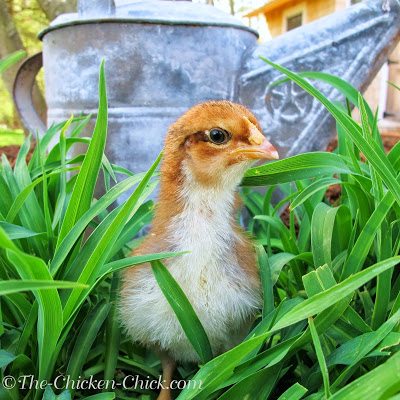

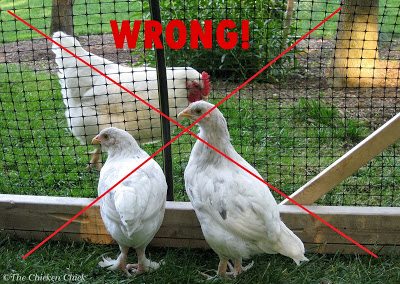
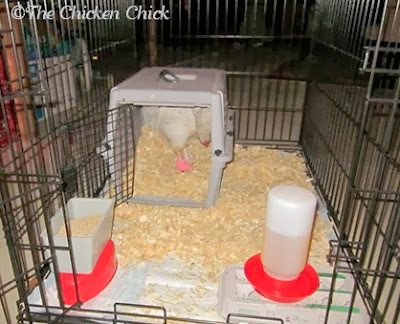

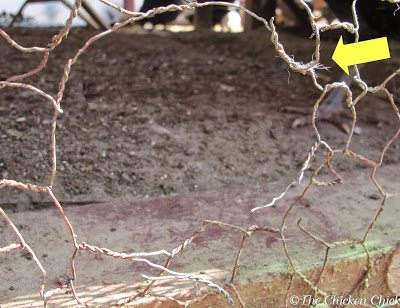

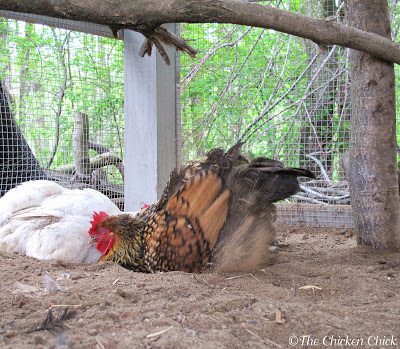
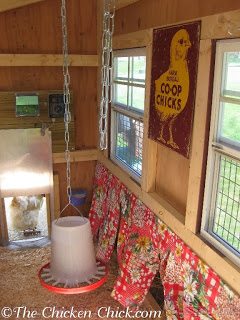
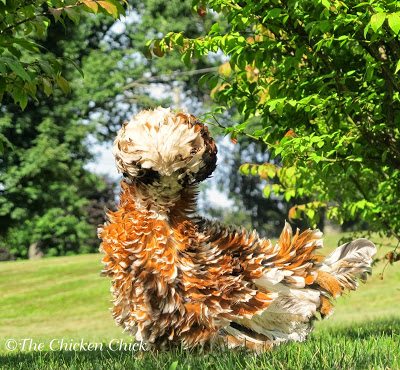
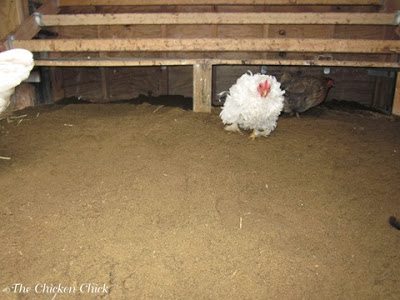
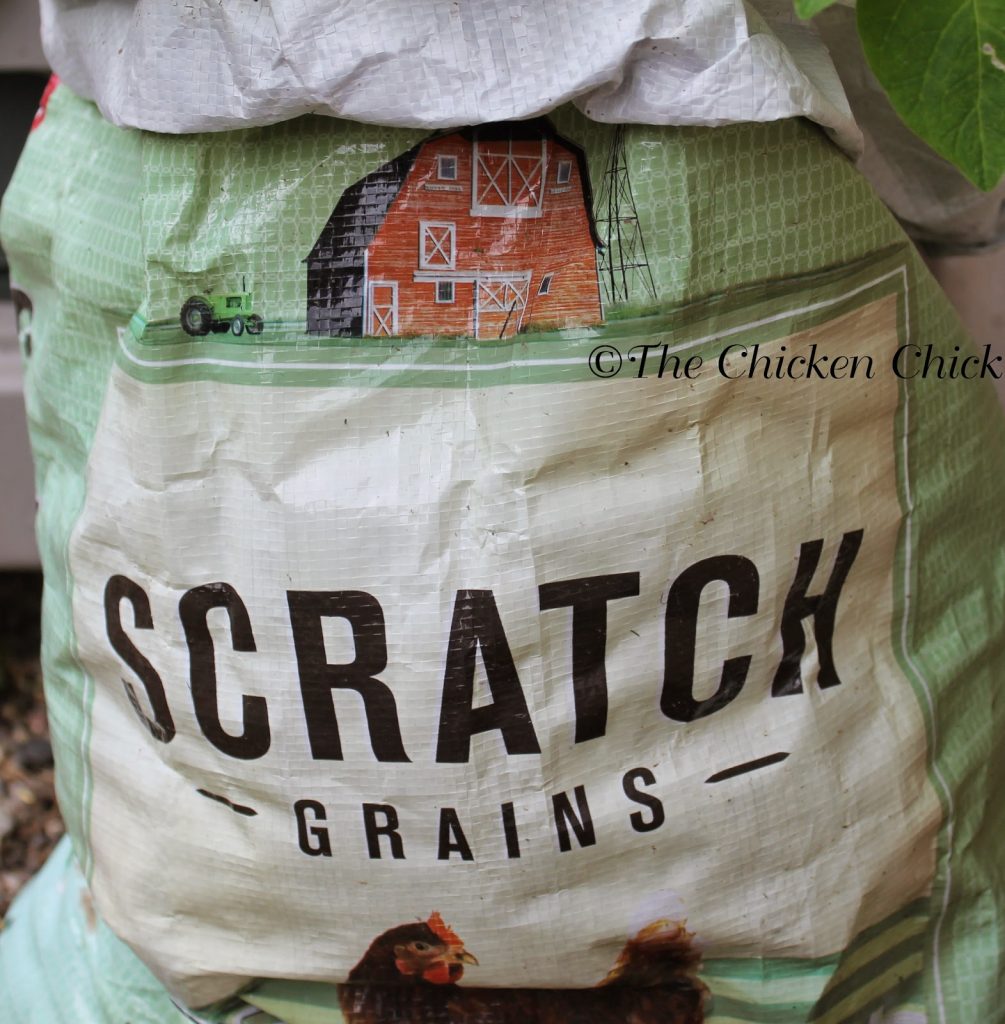
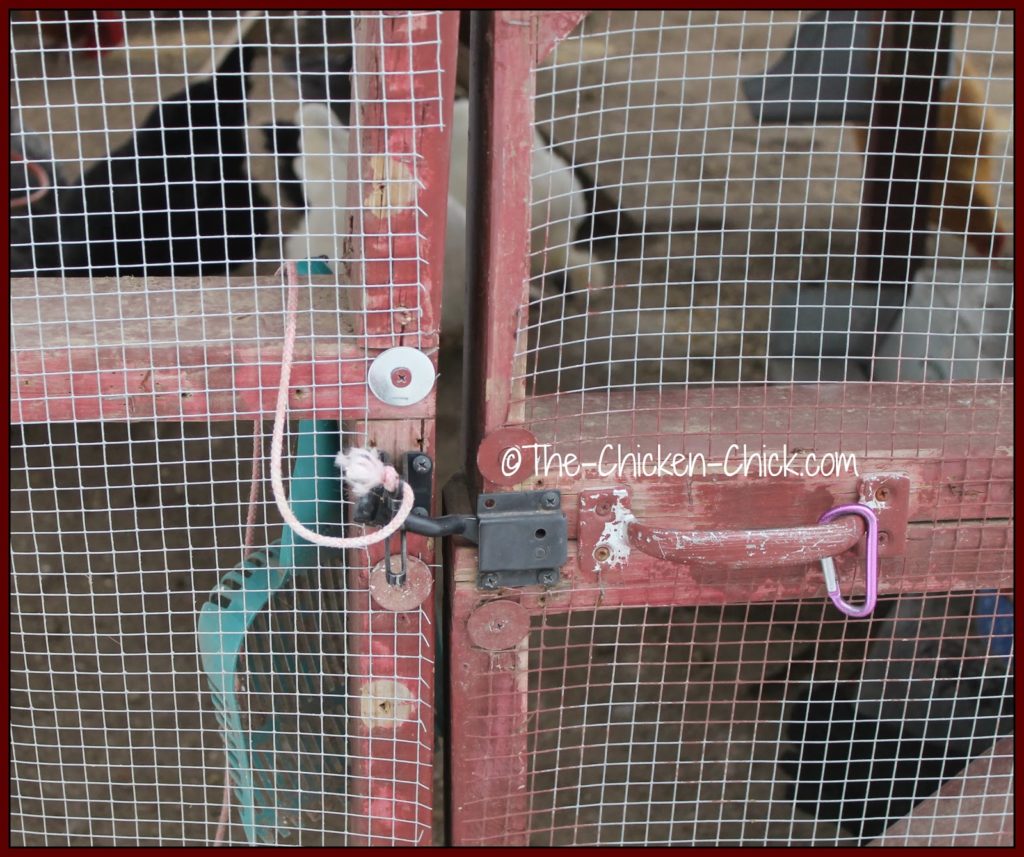

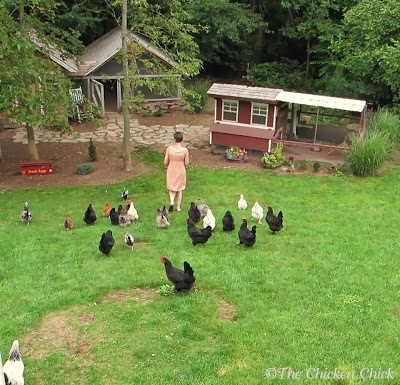
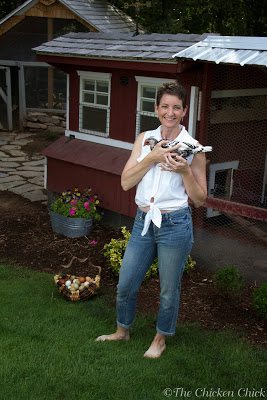






















i trained mine with marshmellows. just make a patbhto the coop and they will go. do it at the same time evreynight and after a few weeks, they will go in on their own. we only have to lock the coop now after letting them in the yard as they go in on their own. use only white marshmellows though, they dont like the colored ones.
we feed my chicken table scraps all the time. we also let them run around the yard and return to their coop and run at night, and they eat the rotten foods that we try to use as fertilizer and have not had any problems. be sure you do NOT feed them chocolate, but they lovpe marshmellows. my little siblings trained a bunch of mine to do tricks for a marshmellow and they have never goten sick from it. i have 24 hens.
Is it better for them to dust in ground or sand
They poop a lot and it stinks you need to clean coop every day and use the products the chicken chic tells you
Sounds like you need a few seramas indoors! :-) It's really no different than keeping a parrot or some other kind of bird.